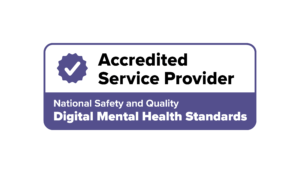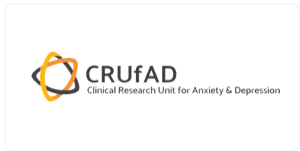Why Excessive Positivity Can Be 'Toxic'

Written by Clinical Psychologist, Katie Dobinson
Have you ever been told to “keep your chin up, and just look on the bright side”, in the midst of an upsetting situation? Have you ever heard someone say “just think positive” during times of hardship?
We can take a guess that this advice, while well-intended, didn’t feel so good to hear. Perhaps it made you feel dismissed, invalidated your feelings, and didn’t help you resolve the upsetting situation. Perhaps it even made you feel like it was wrong to feel anything other than positive.
Sometimes, we can also get caught up in giving ourselves the same not-so-helpful advice, telling ourselves we need to be more ‘positive’ when we would actually benefit from acknowledging other emotions, such as fear, sadness, or overwhelm.
Unfortunately this can leave us stuck in a “toxic positivity trap”. In other words, the more you force yourself to feel positive when other emotions are also present, the less positive you’re likely to feel. It’s a trap because we find ourselves constantly under pressure, thinking that we should put a positive spin on all experiences. Usually, this doesn’t make us feel very good.
This excessive positivity trap can keep us from learning we can tolerate and learn to manage a range of feelings, including the messy, unpleasant or difficult ones, in healthy ways.
What is ‘toxic positivity’?
Toxic positivity involves thinking and acting in an unrealistically positive manner, whilst dismissing or minimising other emotions in the process.
Whilst there are many different definitions for the term, generally speaking, toxic positivity involves responding to genuinely distressing situations or experiences with excessively positive attitudes, thoughts, and behaviours. Positivity becomes unhelpful, or ‘toxic’, when we minimise authentic emotions, such as sadness, fear and grief by pushing these away with statements such as “don’t worry about it”, “it will be fine”, or “things happen for a reason”.
These excessively positive statements become problematic when they cause us to avoid any difficult emotional experiences by trying to forcefully flip our feelings to the positive.
Toxic or excessive positivity can look and feel like:
- Constantly “pushing down” unpleasant feelings and forcing yourself to “be happy”, when you’re dealing with a difficult situation that most people would find upsetting.
- Avoiding taking helpful actions towards a problem that could be solved, by instead telling yourself to “just think positive” and taking no action.
- Being told that the only way to manage unpleasant feelings is not to feel them at all.
- Forcing ourselves to always find the silver-lining, rather than acknowledging the nuanced light and dark shades of an experience.
When life is tough, what helps is acknowledging the reality of a situation for what it is, and being supported in facing and overcoming the challenge constructively. Maintaining an optimistic outlook can certainly be helpful, but not if we’re also dismissing and minimising any sadness or grief. In fact, excessive positivity can actually make our struggles even harder to manage.
But isn’t it good to be optimistic?
Having an optimistic outlook during tough times can be a good thing, so long as it’s balanced. This involves holding on to hope, whilst also allowing different emotional experiences to arise.
In this way, being optimistic is different to toxic positivity as it means holding space for recognising how you feel and for the reality of a situation, whilst also being hopeful about positive change. The issue with being excessively positive when this feeling doesn’t fit the facts of a situation, is that we squash down our true feelings, forcing our outward expression to be “positive”, while challenging feelings still linger under the surface.

This is where Cognitive Behavioural Therapy (commonly known as CBT) can help out. CBT teaches us to notice when we might be getting caught in unhelpful thinking styles like excessive positive thinking, as well as how to reframe these unhelpful thoughts with realistic, balanced thinking.
CBT also helps us to learn that different types of emotions are all valuable and these often communicate a need to us. In this way, we can learn to think of emotions as valuable, helpful experiences, rather than labelling them as ‘positive’ or ‘negative’.
If toxic positivity pushes away all challenging emotions, we don’t get to experience the rich diversity of emotional experiences in life.
Cognitive reframing and excessive positivity
Cognitive reframing involves noticing unhelpful thinking patterns, and instead learning to look for more realistic and balanced perspectives.
Here are some examples of how we can reframe excessively or ‘toxic’ positive thoughts, leading to self-acceptance and validation rather than suppressing how we feel:
Situation 1: You’ve had a disagreement with someone you care about.
Unhelpful thought: I shouldn’t be upset, I need to stop feeling so sad right now. Don’t think about it.
Balanced alternative thought: I can sense that I still feel sad about this, and that’s understandable. Maybe we can talk a little more to clear the air.
Situation 2: You’re going through financial hardship with unstable work.
Unhelpful thought: Others are worse off than me, so it’s unjustified for me to feel worried or upset about my issues.
Balanced alternative thought: Even though others are facing hardship, I am dealing with financial stress and that is really challenging. I am allowed to be affected by this, and I am worthy of asking for support. I can hold space for my feelings, and this doesn’t negate the hardship others are experiencing.
Remember, experiencing a range of emotions then means we can notice, cherish, and have gratitude for the good times, as well as learn healthy ways to cope when times are tough.
Bonus download! Learn what to say when faced with toxic or excessive positivity. In this brand new downloadable handout, we show you how to have more balanced conversations with yourself and others.
If you’d like to learn more about how to shape your thoughts for a more balanced, healthy and realistic mindset, you might like to try Cognitive Behavioural Therapy. Check out our CBT-based programs here.
Not Sure which program is for you?
Take a Test to Help You Choose a Program
If you’re unsure which program to pick, take our anonymous online test to check how you feel and see which program may be suitable. This test will show you your levels of stress, anxiety, or depression and will make suggestions on what you can do next.







